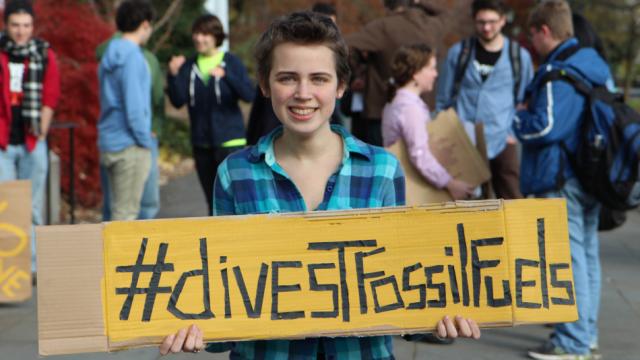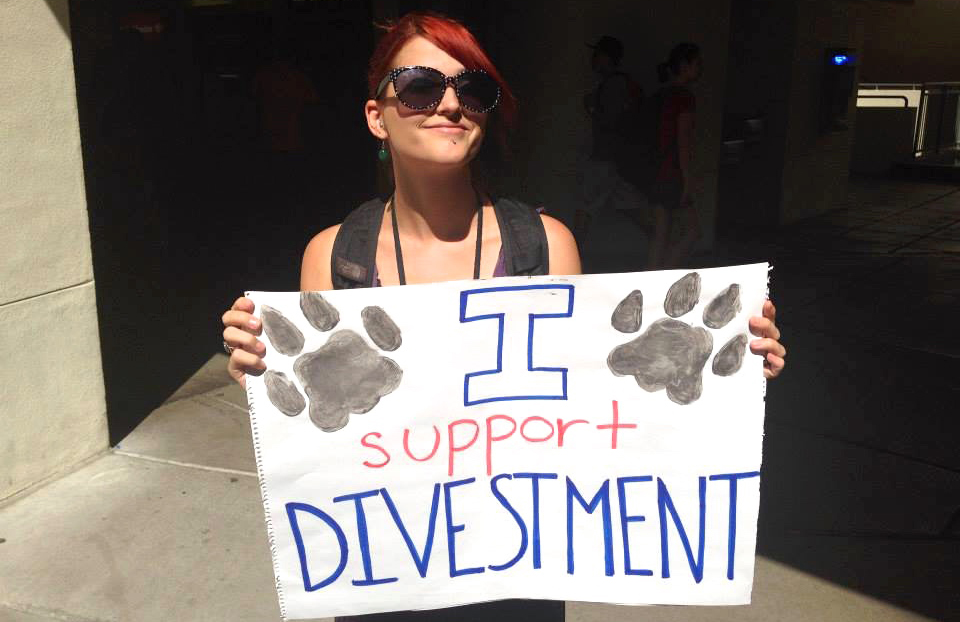
America’s biggest state pension funds came under rising pressure on Tuesday to dump coal companies from their combined $500 billion portfolio, in a major escalation of the fossil fuel divestment campaign.
The California senate leader, Kevin de Leon, said he was introducing a bill on Tuesday calling on the two state funds – CalPERS, the public employees’ pension fund, and CalSTRS, the teachers’ pension funds, to drop all coal holdings.
The bill is part of a larger package of climate measures – endorsed by Governor Jerry Brown – aimed at gearing up California’s efforts to fight climate change.
The former U.S. vice-president and climate champion Al Gore spoke to the CalSTRS board in Sacramento last Friday. Gore has long argued that fossil fuels are a risky proposition as a long-term investment.
“Our state’s largest pension funds also need to keep their eyes on the future,” De Leon, a Democrat, said in an email. “With coal power in retreat, and the value of coal dropping, we should be moving our massive state portfolios to lower carbon investments and focus on the growing clean-energy economy.”
The two state funds are the biggest targets so far of a divestment movement that has moved from college campuses towards mainstream financial conversation.
CalPERS manages about $300 billion in assets, including 30 coal-mining companies valued at about $167 million, according to a fact sheet prepared by De Leon’s office.
CalSTRS with assets of about $190 billion has about $132 million in coal assets.
But the divestment movement is showing momentum. The Rockefeller Brothers Fund – the legacy of a business empire founded on oil – shed all fossil fuel holdings last September. Stanford University also committed to divesting from coal companies.
Meanwhile, Harvard University is being taken to court by students for refusing to divest.
In a separate initiative, fossil fuel activists are pushing the University of California to eliminate its $90bn in fossil fuel holdings.
De Leon’s proposal calls on managers of both state funds to withdraw from all coal companies, and make no new investments in coal within 18 months after the bill becomes law.
It further calls on the two funds to explore the feasibility of expanding its divestment, by divesting entirely from fossil fuels – including natural gas – and report back to the state legislature by 2017.
CalPERS refused to respond directly to the divestment call until it had seen the proposals. “There have been no discussions or decisions on this topic,” a spokesman said in an email.
But the fund told reporters in a statement last month: “We are a founding member of the Investor Network on Climate Change and most recently we partnered with more than 100 global institutional investors, representing more than $13 trillion, to call on governments and policy makers to take action on carbon pricing, to provide regulatory support for energy efficiency and renewable energy, and to fully support innovation and deployment of new low-carbon technologies by the end of 2015.”
CalSTRS did not respond to requests for comment on the divestment proposals or on Gore’s visit.
Managers of the two funds balked when De Leon first unveiled his divestment proposals. But divestment activists said the two funds had been amenable to shareholder pressure in the past, and that they were hopeful of negotiating a withdrawal from coal.
The divestment call was bundled with a suite of measures intended to solidify California’s efforts to fight climate change.
The proposals would commit California to generating half of its electricity from wind and solar power by 2050 – up from the current target of 33%. They also call for a 50% reduction in the use of gasoline for fuel by 2030, through a combination of fuel efficiency measures and investments in public transport. Existing buildings would be required to cut their energy use by 50%.
Brown embraced a number of those goals in his inaugural address last month.
But the measures are in for a fight from oil and electricity companies and even some Democrats, the Los Angeles Times reported.
In introducing his proposal, De Leon said he was taking his cue from the growing momentum of a divestment movement which has now spread to 300 college campuses.
“We need to listen to the values of the next generation and make sure our investment strategy reflects their priorities,” he said.
3 WAYS TO SHOW YOUR SUPPORT
- Log in to post comments















